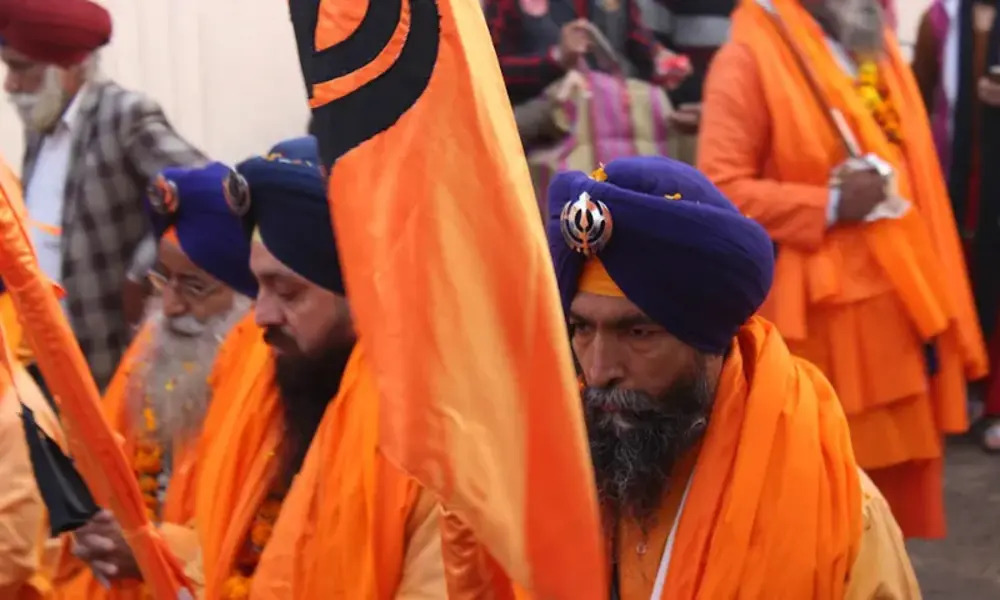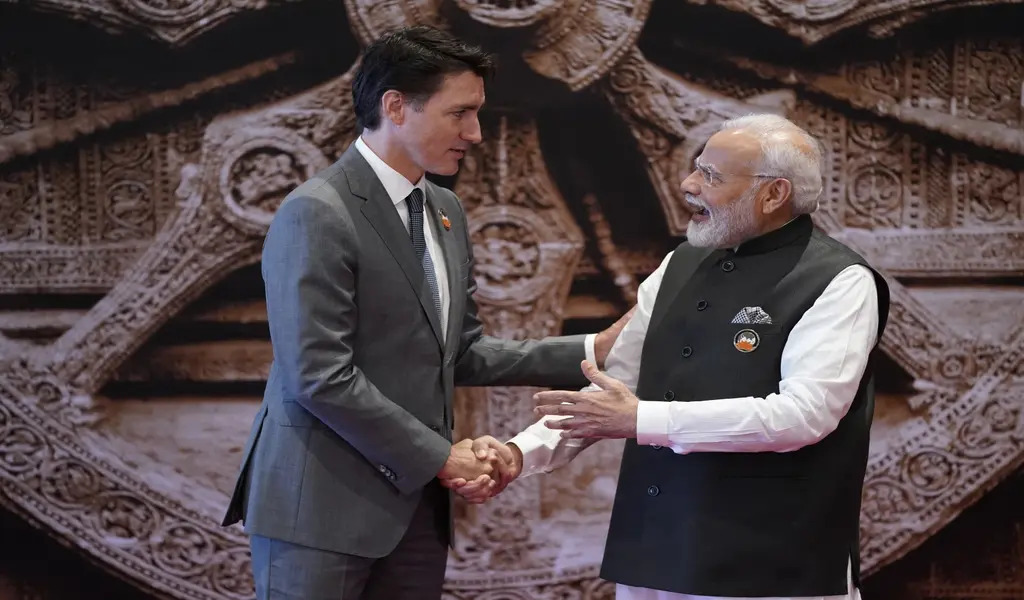News
Sikh Movement: Canada’s Involvement In The Sikh Struggle In India

(CTN News) – Canada, often known for its multiculturalism and welcoming nature, has a rich and diverse population that includes a significant Sikh community.
Over the years, this community has played a pivotal role in shaping Canadian society and politics.
However, the relationship between Canada and the Sikh struggle in India is a complex and multifaceted one, with historical, social, and political factors intertwining to create a unique narrative.
In this blog post, we will explore how Canada got caught up in the Sikh struggle in India, examining key events, factors, and consequences that have shaped this dynamic.
-
Migration and Early Settlement
The roots of the Sikh community in Canada trace back to the late 19th and early 20th centuries when Sikhs began immigrating to Canada, mainly from the Punjab region of British India.
Most of these early Sikh immigrants worked on the construction of the Canadian Pacific Railway, which connected the east and west coasts of Canada.
They faced harsh working conditions and discrimination, including the infamous “Komagata Maru” incident in 1914 when a ship carrying Sikh passengers was denied entry into Canada.
-
Development of the Sikh Community
Despite the initial challenges, Sikh immigrants established themselves in Canada and started to build a vibrant community. They established gurdwaras (Sikh temples), cultural organizations, and businesses, contributing to the social fabric of Canadian society.
Sikh values such as equality, community service, and compassion resonated with Canadian ideals, fostering a sense of belonging among the Sikh population.
-
The 1984 Anti-Sikh Riots and the Khalistan Movement
The relationship between Canada and the Sikh struggle in India intensified in the aftermath of the 1984 anti-Sikh riots in India, which followed the assassination of Prime Minister Indira Gandhi by her Sikh bodyguards.
These riots led to the death of thousands of Sikhs and widespread human rights abuses. Many Sikhs in Canada were deeply affected by these events, as they had friends and family in India.
Additionally, the rise of the Khalistan movement, which sought to establish an independent Sikh state in Punjab, gained traction among some segments of the Sikh diaspora in Canada.
The presence of Sikh separatist elements in Canada created tensions between the Canadian government and India. Canada’s commitment to freedom of speech and association clashed with India’s concerns about support for separatism on Canadian soil.
-
Air India Flight 182 Bombing
One of the most tragic incidents in the history of Canada’s involvement in the Sikh struggle in India was the bombing of Air India Flight 182 in 1985. The plane, en route from Canada to India, was targeted by Sikh militants seeking revenge for the 1984 anti-Sikh riots.
The bombing resulted in the deaths of 329 people, making it the deadliest act of aviation terrorism in history at the time.
This event had a profound impact on Canada’s Sikh community and its relationship with the broader Canadian society.
-
The Question of Political Asylum
As tensions simmered between Canada and India over the Sikh struggle, the issue of political asylum became a contentious one. Some Sikhs sought refuge in Canada, claiming persecution in India due to their alleged involvement in the Khalistan movement.
The Canadian government faced a difficult balancing act, as it needed to uphold its humanitarian values while maintaining diplomatic relations with India.
-
Canadian Government Response
Over the years, the Canadian government has taken various measures to address the complexities surrounding the Sikh struggle in India.
It has cracked down on hate crimes and extremism, while also working to build bridges between the Sikh community and other Canadians. Efforts have been made to ensure that Canada does not become a safe haven for extremists from any background.
-
The Evolving Canadian Sikh Community
The Canadian Sikh community has evolved significantly over the years. Today, it is a diverse and dynamic group that includes both moderate and extremist elements.
While the majority of Canadian Sikhs are law-abiding citizens who contribute to their communities, a small minority continues to support separatist ideologies.
Key Details About The Sikh Movement
Below, we delve into key details surrounding this escalating issue:
- The Khalistan Movement: The Khalistan movement seeks an independent Sikh state, Khalistan, and has its roots in the demands for Sikh autonomy within India. It has been a source of tension between Sikh communities and the Indian government for decades.
- Allegations of Canadian Support: India has repeatedly accused Canada of providing tacit support to Khalistan activists, claiming that they use Canadian soil as a safe haven for their activities.
- Hardeep Singh Nijjar’s Assassination: The assassination of Hardeep Singh Nijjar, a prominent figure within the Khalistan movement, occurred in Canada in June. Prime Minister Trudeau’s recent statements have raised suspicions about India’s involvement in this high-profile killing.
- Denials and Counteraccusations: The Indian government has categorically denied any role in Nijjar’s assassination, labeling Trudeau’s claims as baseless. Simultaneously, India accuses Canada of trying to divert attention from the presence and activities of Khalistan activists within Canada.
- Diplomatic Expulsions: The exchange of diplomatic expulsions between the two nations signals a deteriorating relationship and a deepening mistrust between Canada and India.
Conclusion
Canada’s involvement in the Sikh struggle in India is a complex and multifaceted story that encompasses immigration, political activism, terrorism, and diplomacy.
The Sikh community in Canada has faced both triumphs and tragedies in its journey to become an integral part of Canadian society.
As Canada continues to navigate its relationship with the Sikh diaspora and India, it must uphold its values of multiculturalism and respect for human rights while addressing security concerns and promoting dialogue and understanding among its diverse communities.
The story of Canada and the Sikh struggle in India serves as a reminder of the challenges and opportunities that come with multiculturalism and global diaspora communities in the 21st century.





























